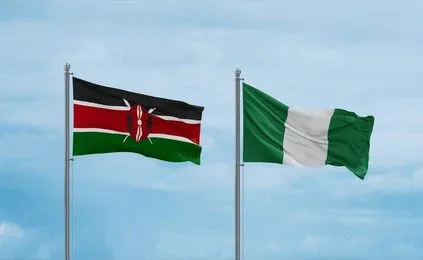adverts
American technology giants are raising alarm over mounting regulatory and operational obstacles in Nigeria and Kenya, two of Africa’s top tech hubs, according to the 2025 Foreign Trade Barriers report from the Office of the United States Trade Representative (USTR).
The report highlights corruption, weak intellectual property (IP) enforcement, and new digital tax regimes as persistent barriers for U.S. firms looking to do business in the region. These challenges, it says, are undermining the competitiveness of American firms, including Amazon, Google, Meta, Netflix, and Microsoft.
“IP enforcement remains inadequate due to chronically insufficient resources for enforcement agencies, porous borders, entrenched trafficking systems that make enforcement difficult, and corruption,” said Jamieson L. Greer, the USTR.
adverts
In Nigeria, the situation is especially acute. The report accuses the government of failing to curb counterfeit software, pirated media, and online copyright violations, which severely hurt licensed content providers. U.S. businesses also face daily operational disruptions, with officials allegedly making “inappropriate demands for ‘facilitative’ payments.” Judicial weaknesses and political infighting have further delayed reforms.
Kenya, despite its reputation as a rising digital economy, also faces criticism. The USTR notes systemic bribery, uneven IP protection, and a regulatory environment that disadvantages compliant American firms. Many U.S. companies say they’re outcompeted by rivals who pay bribes or flout legal standards.
The situation is exacerbated by new digital tax regimes in both countries:
- Kenya recently replaced its digital services tax with a 3% “significant economic presence” tax on gross revenues earned by foreign digital firms without a physical footprint in the country. The law targets non-resident companies earning more than KES 5 million ($38,800) annually from Kenyan users.
- Nigeria, since 2020, has required non-resident tech firms to pay both income tax and VAT on digital services consumed locally, significantly increasing their tax burden.
These tax changes have sparked concerns over rising compliance costs, the risk of regulatory overreach, and potential market deterrence for U.S. firms.
The report arrives as President Donald Trump reasserts pressure on African nations through trade policy, threatening higher tariffs unless countries like Nigeria and Kenya eliminate trade and investment barriers by June 2025. Although those tariffs are currently paused, the looming deadline has added urgency to U.S. diplomatic and commercial efforts.
Click the link Puretvonline.com | WhatsApp Channel to join the whatsapp channel
GOT A STORY?
Contact/WhatsApp: +233243201960 or Email: manuelnkansah33@gmail.com


